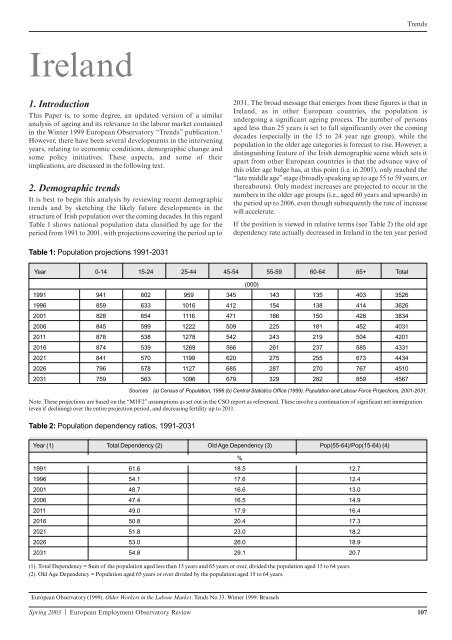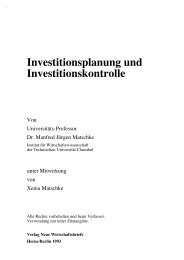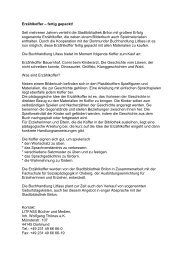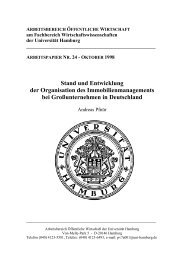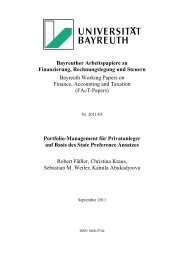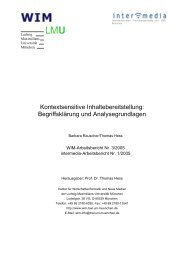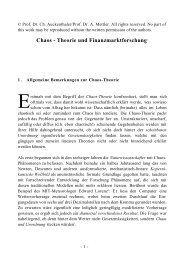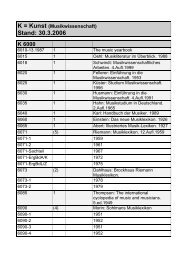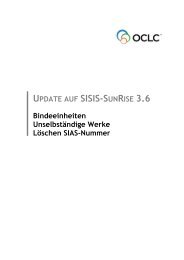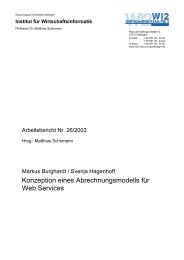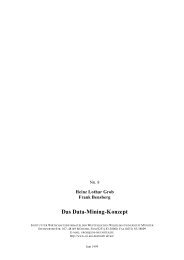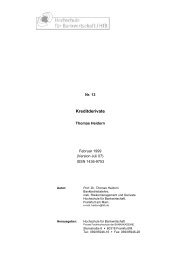FRANCE The
FRANCE The
FRANCE The
Create successful ePaper yourself
Turn your PDF publications into a flip-book with our unique Google optimized e-Paper software.
Ireland<br />
1. Introduction<br />
This Paper is, to some degree, an updated version of a similar<br />
analysis of ageing and its relevance to the labour market contained<br />
in the Winter 1999 European Observatory “Trends” publication. 1<br />
However, there have been several developments in the intervening<br />
years, relating to economic conditions, demographic change and<br />
some policy initiatives. <strong>The</strong>se aspects, and some of their<br />
implications, are discussed in the following text.<br />
2. Demographic trends<br />
It is best to begin this analysis by reviewing recent demographic<br />
trends and by sketching the likely future developments in the<br />
structure of Irish population over the coming decades. In this regard<br />
Table 1 shows national population data classified by age for the<br />
period from 1991 to 2001, with projections covering the period up to<br />
Table 1: Population projections 1991-2031<br />
Spring 2003 | European Employment Observatory Review 107<br />
Trends<br />
2031. <strong>The</strong> broad message that emerges from these figures is that in<br />
Ireland, as in other European countries, the population is<br />
undergoing a significant ageing process. <strong>The</strong> number of persons<br />
aged less than 25 years is set to fall significantly over the coming<br />
decades (especially in the 15 to 24 year age group), while the<br />
population in the older age categories is forecast to rise. However, a<br />
distinguishing feature of the Irish demographic scene which sets it<br />
apart from other European countries is that the advance wave of<br />
this older age bulge has, at this point (i.e. in 2001), only reached the<br />
“late middle age” stage (broadly speaking up to age 55 to 59 years, or<br />
thereabouts). Only modest increases are projected to occur in the<br />
numbers in the older age groups (i.e., aged 60 years and upwards) in<br />
the period up to 2006, even though subsequently the rate of increase<br />
will accelerate.<br />
If the position is viewed in relative terms (see Table 2) the old age<br />
dependency rate actually decreased in Ireland in the ten year period<br />
Year 0-14 15-24 25-44 45-54 55-59 60-64 65+ Total<br />
1991 941 602 959 345 143 135 403 3526<br />
1996 859 633 1016 412 154 138 414 3626<br />
2001 828 654 1116 471 186 150 428 3834<br />
2006 845 599 1222 509 225 181 452 4031<br />
2011 878 538 1278 542 243 219 504 4201<br />
2016 874 539 1269 566 261 237 585 4331<br />
2021 841 570 1199 620 275 255 673 4434<br />
2026 796 578 1127 685 287 270 767 4510<br />
2031 759 563 1096 679 329 282 859 4567<br />
(000)<br />
Sources (a) Census of Population, 1996 (b) Central Statistics Office (1999). Population and Labour Force Projections, 2001-2031.<br />
Note. <strong>The</strong>se projections are based on the “M1F2” assumptions as set out in the CSO report as referenced. <strong>The</strong>se involve a continuation of significant net immigration<br />
(even if declining) over the entire projection period, and decreasing fertility up to 2011.<br />
Table 2: Population dependency ratios, 1991-2031<br />
Year (1) Total Dependency (2) Old Age Dependency (3) Pop(55-64)/Pop(15-64) (4)<br />
1991 61.6 18.5 12.7<br />
1996 54.1 17.6 12.4<br />
2001 48.7 16.6 13.0<br />
2006 47.4 16.5 14.9<br />
2011 49.0 17.9 16.4<br />
2016 50.8 20.4 17.3<br />
2021 51.8 23.0 18.2<br />
2026 53.0 26.0 18.9<br />
2031 54.8 29.1 20.7<br />
(1). Total Dependency = Sum of the population aged less than 15 years and 65 years or over, divided the population aged 15 to 64 years.<br />
(2). Old Age Dependency = Population aged 65 years or over divided by the population aged 15 to 64 years.<br />
European Observatory (1999). Older Workers in the Labour Market.Tends No.33. Winter 1999. Brussels<br />
%


